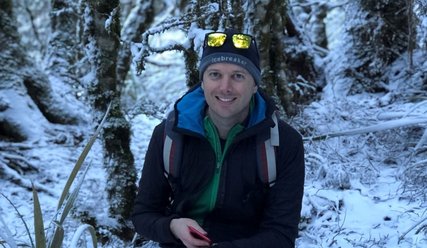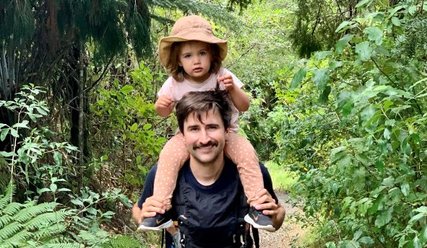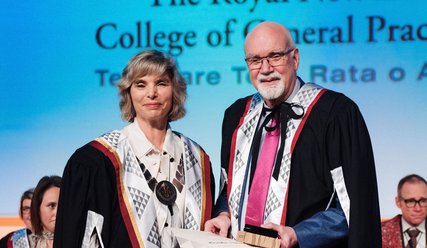Rural hospital medicine an “adventure” for Dr Marc Gutenstein
For rural hospital doctor (RHD) and Fellow Marc Gutenstein, rural medicine has always been an adventure. He’s worked in rural medicine both overseas and across New Zealand, and says he realised how much he loved the rural approach while working across the ditch in Australia, in Tasmania and Alice Springs.
“Rural care proved itself to be hands on, where the doctors involved really make things happen. I enjoyed coming up with creative ways to deliver services.”
For Marc, the diversity of the patient contact in rural medicine is a real highlight. “You get to see a range of people every day, patients and colleagues, and the people I’ve worked with are pragmatic and committed.” Aside from his work in the emergency department at Nelson Hospital, Marc also holds a couple of academic roles at the University of Otago. He works with both the Rural Postgraduate Programme and the Rural Health Academic Centre at Ashburton Hospital, to convene the trauma and emergencies paper for the rural postgraduate programme, and also helped develop the Rural Interprofessional Simulation Course (RiSC) with his colleague, Dr Sampsa Kiuru.
Marc tells us he enjoys his current roles as they offer both clinical, hands-on work, and academic work. For Marc, the teaching side of his roles provide a “creative outlet” where he’s able to develop new methods of teaching, and “form human relationships with trainees”. A challenging balancing act, Marc tells us that doing both clinical and teaching work requires a decent amount of self-discipline and excellent time management.
What are some of the challenges of working rurally?
“Well, probably funding. Urban hospitals tend to attract most of the resources, education and research. Rural hospitals can struggle to attract these things, and the education and training isn’t always as accessible as we’d like it to be. I’d love to see the development of a rural school of health.”
What might you say to encourage trainees to practice rural medicine?
Marc tells us that working in rural medicine is satisfying in both a professional and personal sense. “It is challenging in every way,” Marc says. “It allows you to become a multiskilled professional, where you learn a lot across the board.”
He continues, “In terms of personal satisfaction… life isn’t always about work, you know. Rural medicine provides great opportunities for leisure and family time, not to mention the opportunities to enjoy the outdoors.”
Tell us about the RiSC course you recently developed. How did it all come about?
I developed a simulation training course for registrars in Christchurch and, at the same time, Sampsa and I developed a trauma paper. We saw how effective simulation training was for inter-professional learning and collaboration. We had feedback from nurses who pointed out that there was a big gap between teams in terms of the knowledge and skills needed to handle trauma and emergency incidents in rural hospitals. The course was robust – we surveyed participants before the course started to identify their learning needs, and we followed that up with a post-course survey to assess its efficacy.
“It’s like they had a lightbulb moment where they stopped and realised that teamwork – collaboration – it’s actually a skill you can learn. It’s not something we’re born with. Medicine is not all about data and facts, but teamwork, and that is especially true of teams working in rural hospitals.””
What were the highlights of running the course for you?
For Marc, seeing a visible change in the participants’ behaviours while they undertook the simulation training was really powerful.
“It’s like they had a lightbulb moment where they stopped and realised that teamwork – collaboration – it’s actually a skill you can learn. It’s not something we’re born with. Medicine is not all about data and facts, but teamwork, and that is especially true of teams working in rural hospitals.”
While the course received a lot of positive feedback, Marc says there have been some challenges running RiSC. While seeing people learn and collaborate has been rewarding, it wasn’t necessarily a simple task. “We’re dealing with very experienced staff. It can be difficult to challenge people’s behaviours and habits as an outsider, when we consider how long these guys have been doing this kind of work. Our mission was to try and create a safe space for shared learning, to facilitate a conversation, and thankfully I think we achieved that.”
What other projects do you have in the pipeline?
“We’re still running RiSC. In fact, the next one is already full, and there will be another one in October this year. Outside of RiSC, I’ve been doing research into digital pathways, and how rural medicine may look in the future. Technology…computers… it’s quickly catching up with us, and I’m interested in what the future holds for rural medicine.”


